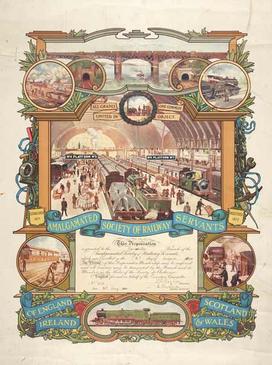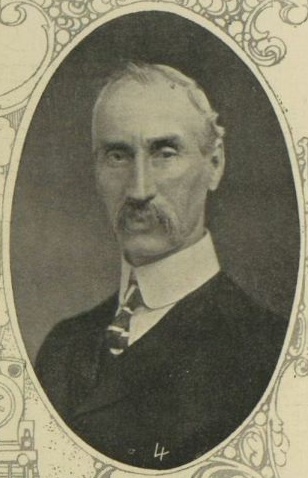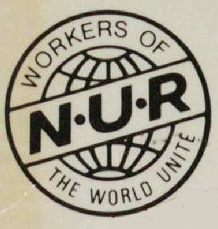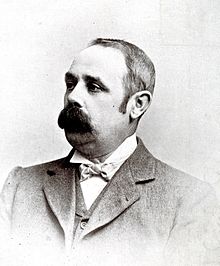In British politics, an affiliated trade union is one that is linked to the Labour Party. The party was created by the trade unions and socialist societies in 1900 as the Labour Representation Committee and the unions have retained close institutional links with it.

The Associated Society of Locomotive Engineers and Firemen (ASLEF) is a British trade union representing drivers of trains including services such as the London Underground (Tube). It is part of the International Transport Workers' Federation and the European Transport Workers' Federation. At the end of 2019 ASLEF had 24,479 members. Mick Whelan became its General Secretary in 2011.

James Henry Thomas was a Welsh trade unionist and politician. He was involved in a political scandal involving budget leaks.

The National Union of Seamen (NUS) was the principal trade union of merchant seafarers in the United Kingdom from the late 1880s to 1990. In 1990, the union amalgamated with the National Union of Railwaymen to form the National Union of Rail, Maritime and Transport Workers (RMT).

The National Union of Agricultural and Allied Workers (NUAAW) was a trades union representing farmworkers in the United Kingdom. The Union was founded in 1906 by trade union activist George Edwards. It was dissolved in 1982 when it merged into the Agricultural Section of the Transport and General Workers' Union.

The Amalgamated Society of Railway Servants (ASRS) was a trade union of railway workers in the United Kingdom from 1872 until 1913.
Sidney Weighell was an English footballer, trade unionist and the General Secretary of the National Union of Railwaymen from 1975 to 1983.

John Bromley was an English Labour Party politician who served as Member of Parliament (MP) for Barrow-in-Furness from 1924 to 1931, and a trade union leader.

The National Union of Distributive and Allied Workers (NUDAW) was a trade union in the United Kingdom.

Albert E. Fox was a UK trade unionist and Labour Representation Committee politician.
The United Textile Factory Workers' Association (UTFWA) was a trade union federation in Great Britain. It was active from 1889 until 1975.
William John Richard Squance was a Welsh trade unionist.

The 1919 United Kingdom railway strike was an industrial dispute that lasted from midnight 26–27 September to 5 October 1919. The strike was called to prevent the government from reducing rates of pay that had been negotiated by the Associated Society of Locomotive Engineers and Firemen (ASLEF) and the National Union of Railwaymen (NUR) during the First World War and to standardize pay rates for different grades of employment. After nine days of strike action, the government agreed to maintain wages until September 1920 and to complete wage negotiations before the end of the year.
This article lists the Labour Party's election results from the 1922 United Kingdom general election to 1929, including by-elections.
This article lists the Labour Party's election results from the 1929 United Kingdom general election until 1945, including by-elections.
Henry W. Franklin was a British trade unionist who served on the National Executive Committee of the Labour Party.
Tom Hollywood was a British trade unionist.
John Edward Binks was a British trade unionist and politician, who served as President of the National Union of Railwaymen, and as an alderman on the London County Council.
Walter T. Griffiths was a Welsh trade union leader.
Trade union sponsorship of UK members of Parliament was a phenomenon whereby a union supported a member of the House of Commons with financial contributions.










